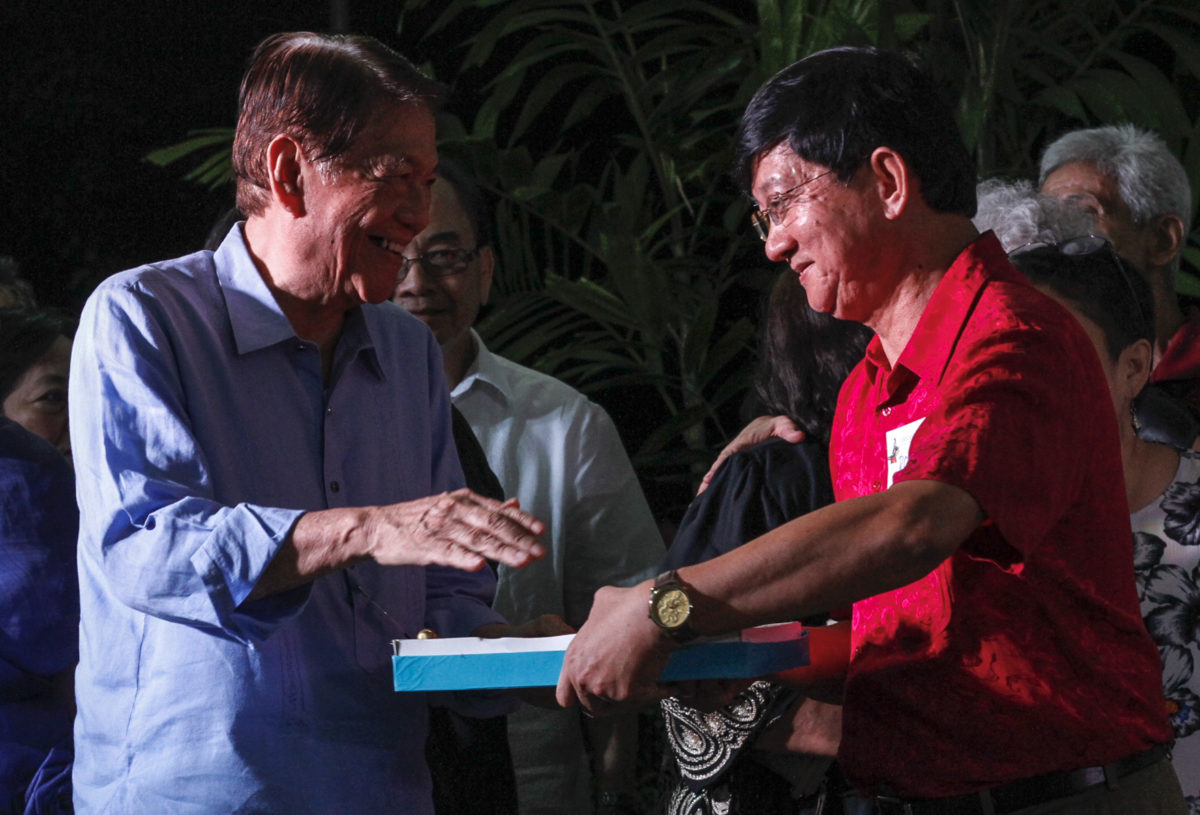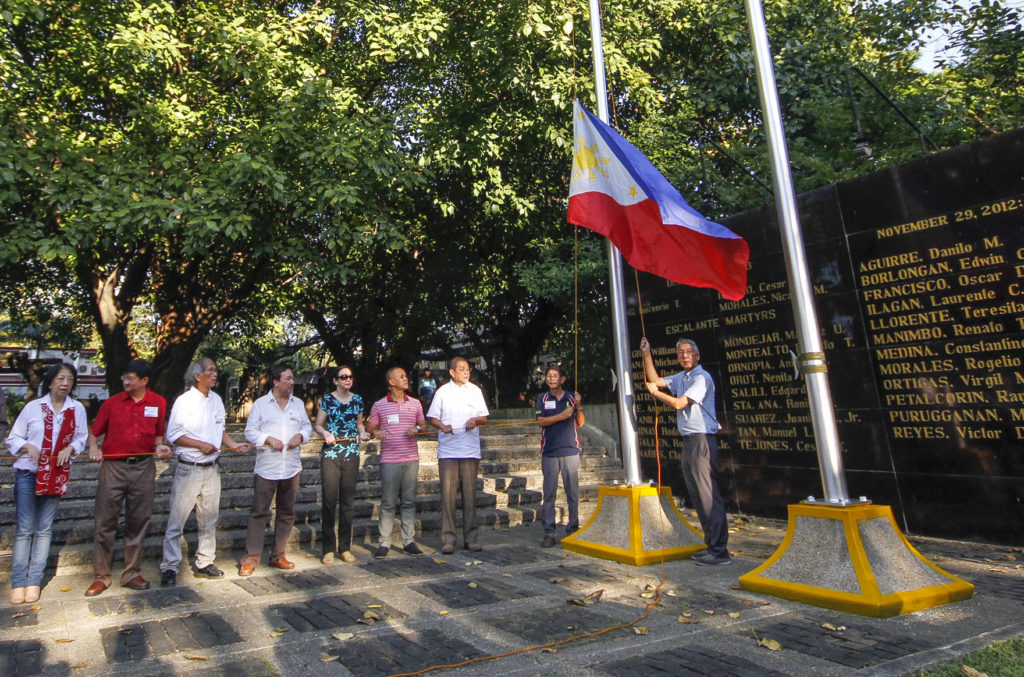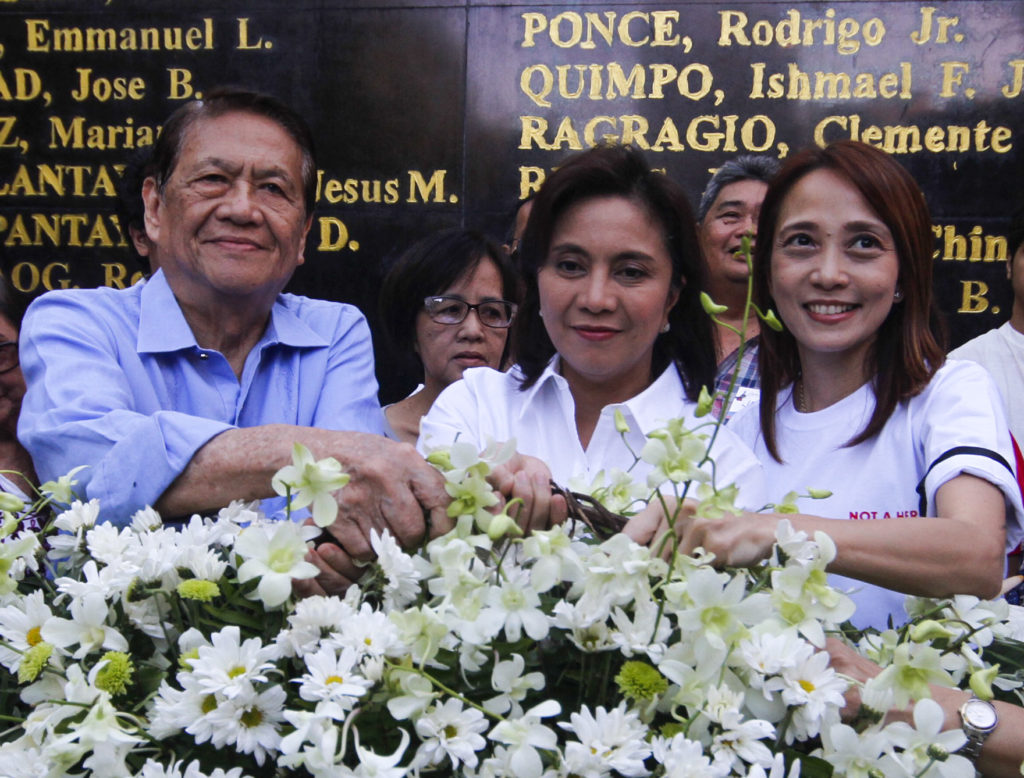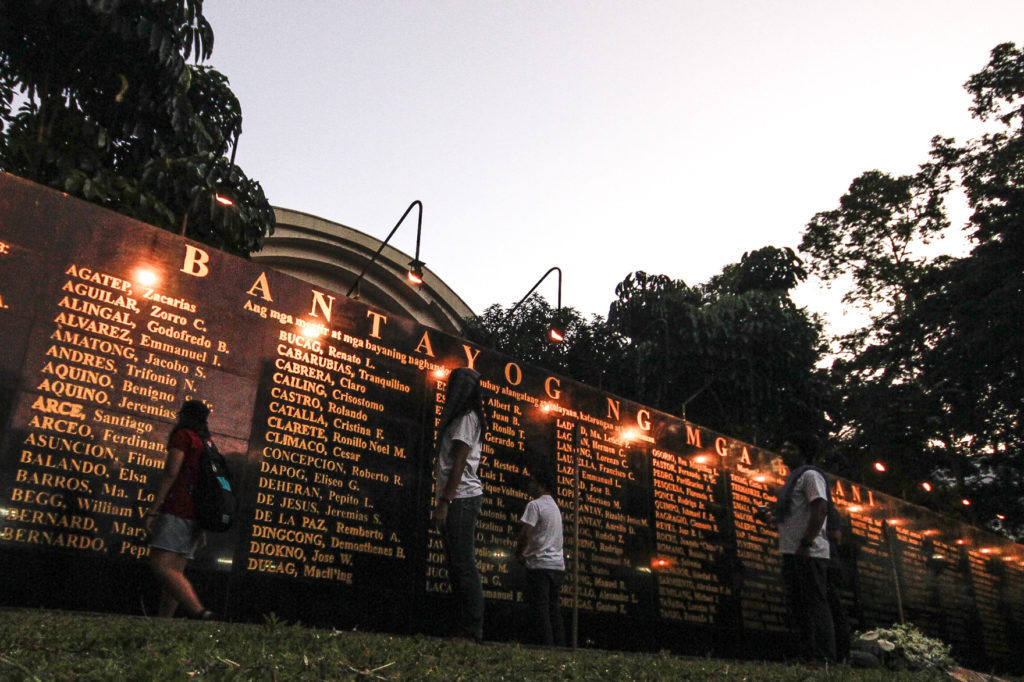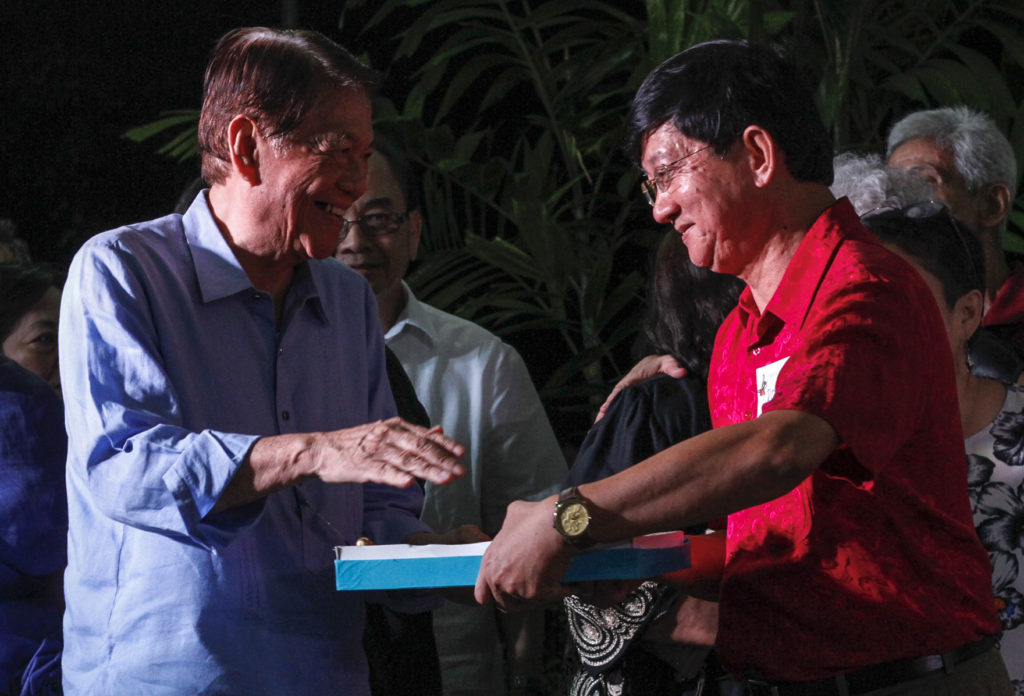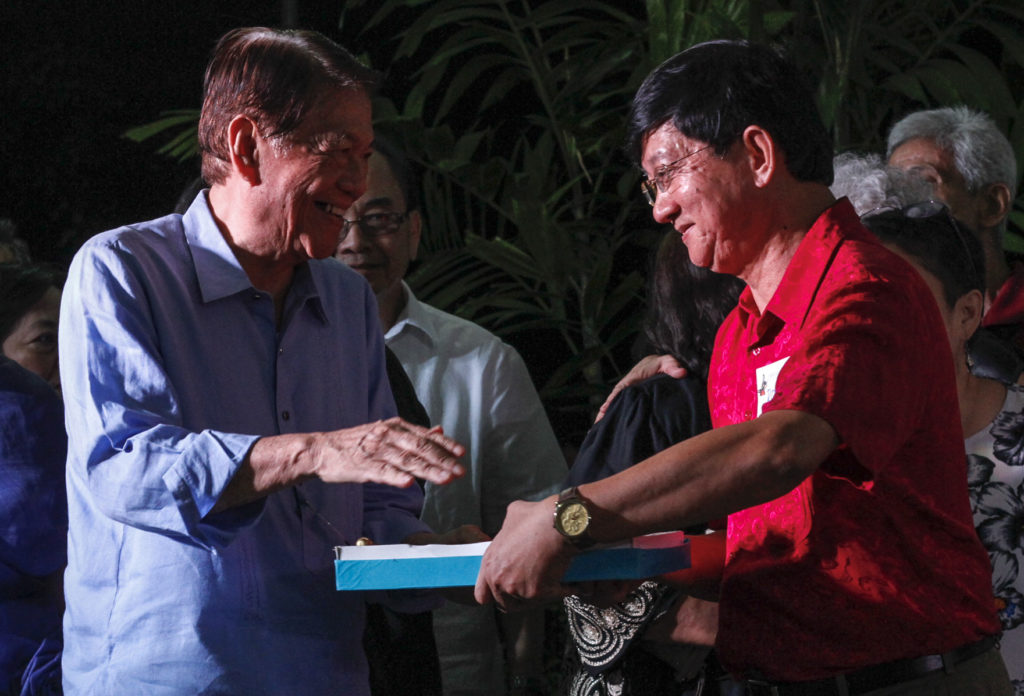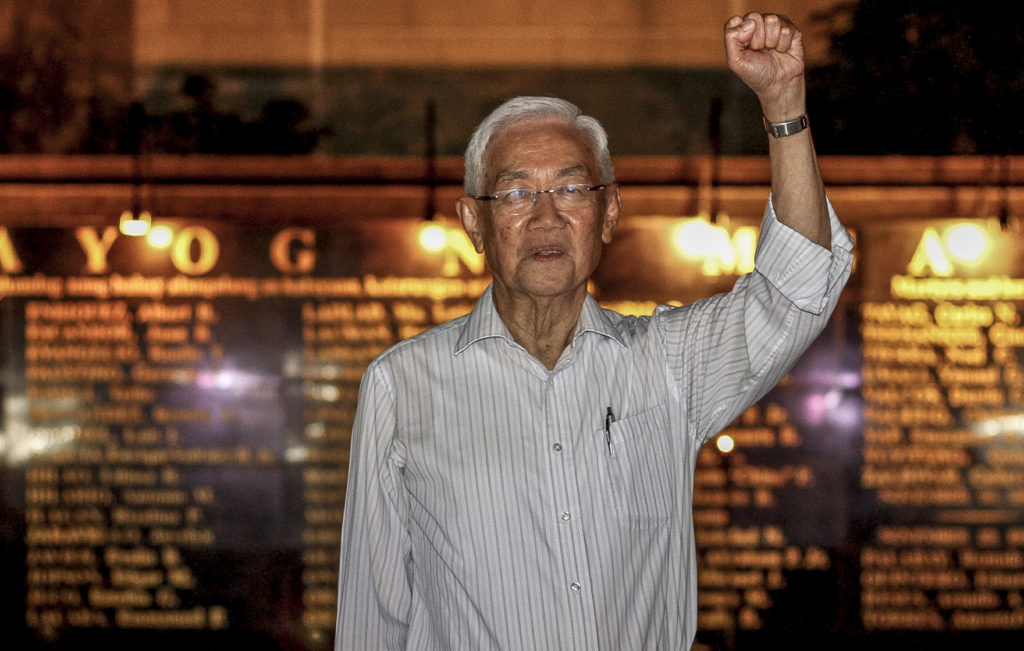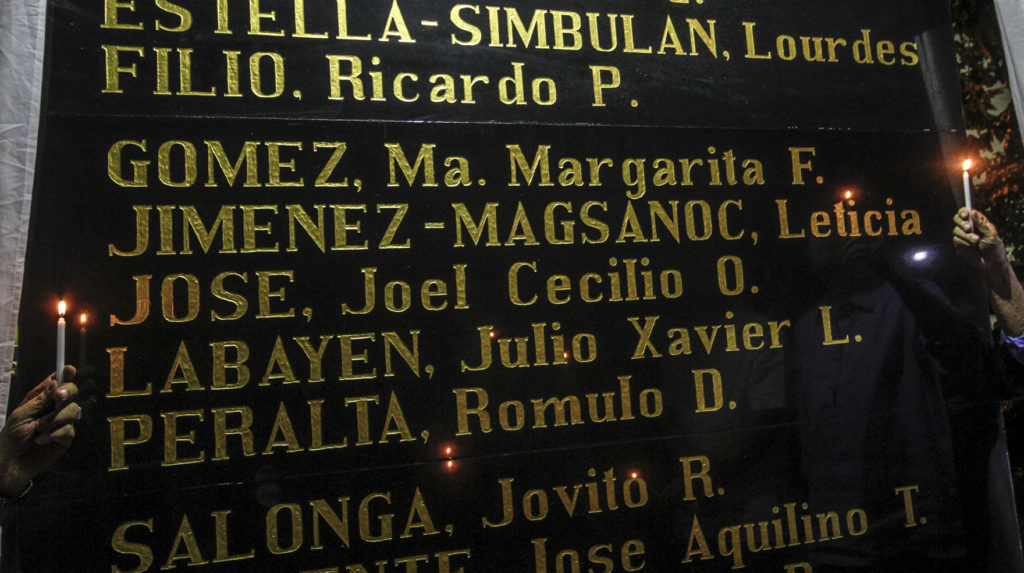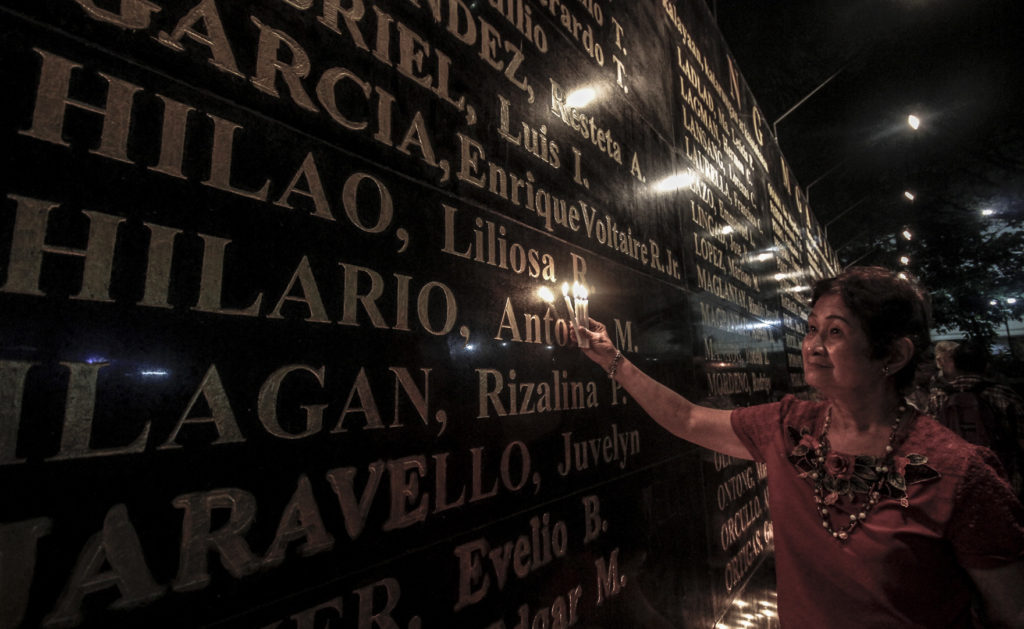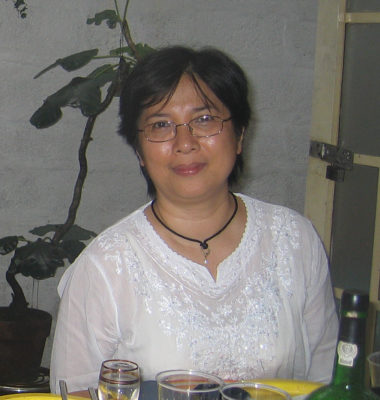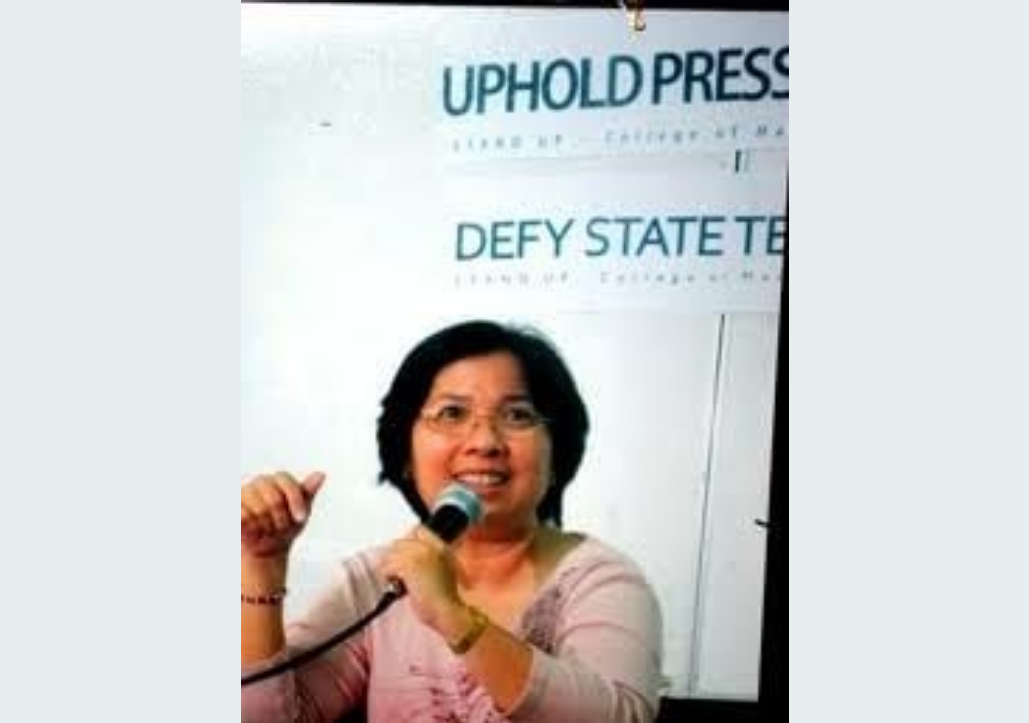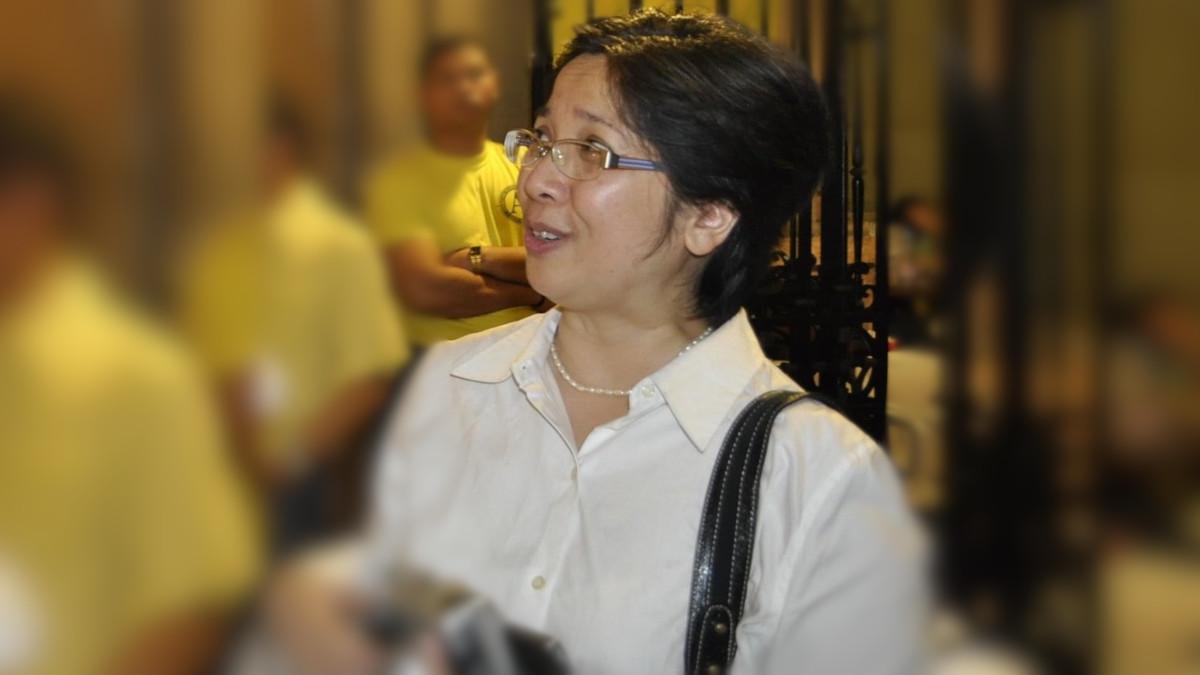Nineteen individuals who defied risks and dedicated their life for the cause of truth, justice, peace and freedom for the Filipino people were declared Heroes and their names were etched in stone at Bantayog ng mga Bayani last Nov. 30.
One of those honored was VERA Files trustee Lourdes “Chit” Estella Simbulan for “being a fearless and committed journalist.”
Leading the list of heroes who fought the Marcos dictatorship was former Senate President Jovito Salonga, statesman and staunch Marcos critic, who was also the founding chair of the Bantayog ng mga Bayani Foundation.
Journalists Leticia Jimenez-Magsanoc and Antonio Zumel were also among the media honorees.
Completing the list of newly declared “Heroes” are: Marciano Anastacio Jr;
Eduardo Q. Aquino; Fortunato Camus; Benjamin “Behn” Cervantes; Hernando Cortez;
Edgardo M. Dojillo; Manuel Dorotan; Ricardo Filio; Margarita “Maita” Gomez;
Joel Jose; Bishop Julio X. Labayen; Romulo Peralta; Jose Aquilino Tangente; Simplicio Villados; and Danilo P. Vizmanos;
Estella-Simbulan, who was also a professor at the University of the Philippines (UP) College of Mass Communication, was hailed for her steadfast commitment to truth and journalism.
“Chit,” as she was fondly called by family and colleagues, began her career in journalism as a staff for the Philippine Collegian, UP’s student paper. The paper was ordered shut down when martial law was declared in 1972. It was successfully reinstated in 1974 through the clamor by the university community. Chit wrote on the corruption and human rights abuses being committed by the administration.
As part of the resistance movement, she was also involved in underground publications such as the Balita ng Malayang Pilipinas. Taliban ng Bayan and the Liberation, that became important in delivering objective and independent information to Filipinos at a time when the state controlled most of the press.
Chit also worked for Ang Pahayagang Malaya, a newspaper that was part of what was known as the mosquito press and published by press freedom icon Jose Burgos. She also wrote for publications that were critical of the Marcos regime such as the Mr. & Ms. Magazine. She worked as editor at the Philippine Daily Inquirer.
Her citation read: “For being both a passionate advocate of responsible and critical journalism as well as excellence in the teaching of journalism putting emphasis on the values of risk-taking, fierce independence, accuracy, as well as personal integrity and incorruptibility.”
She was editor-in-chief of the the Manila Times in 1999. She resigned together with other editors and reporters after the owner-publisher apologized to then President Joseph Estrada for their report on a corruption-tainted government deal with an Argentinian power firm. She moved on to become editor-in-chief of a political tabloid Pinoy Times.
Speaking in behalf of the professionals-awardees, Roland Simbulan, Chit’s husband, said,”These professionals chose the road less taken and with their courage and brilliance, resisted the Marcos dictatorship during our nation’s darkest years. Their torches have inspired others.
The 19 new “Heroes” bring to 287 the number of Filipinos the Bantayog ng mga Bayani Foundation has honored with their names engraved on the Wall of Remembrance since its founding in 1986.
The Bantayog ng mga Bayani was conceived “to honor Filipino patriots who struggled valiantly against the unjust and repressive rule of Ferdinand E. Marcos. “
The annual tribute to heroes and maryrs in the People’s resistance against the dictatorship is always held on the birth anniversary of the Great Plebeian and Father of the Philippine revolution, Andres Bonifacio.
Last week, while the acts of courage of the honorees were being recalled, a few kilometers away at the People Power Monument, thousands, mostly young people, staged a rally protesting the clandestine burial of Marcos at the Libingan ng mga Bayani.
In his speech, former Senator and Bantayog ng mga Bayani Chair Wigberto Tañada stressed that Marcos is not a hero. “He does not deserve to be buried at the Libingan ng mga Bayani,” he said.
President Rodrigo Duterte had allowed the burial of strongman Ferdinand Marcos at the Libingan ng mga Bayani (LNMB) after the Supreme Court dismissed all petitions that sought to stop the burial last Nov. 8. Ten days later, a discreet burial was held by the Marcos family with the assistance of the military. Presidential spokespersons denied the president had any knowledge of the burial.
Days before the protests, on Nov. 23, leaders of church-based and civil society groups have warned of a de facto martial law in the country amid a spate of extra judicial killings under the banner of President Duterte’s drug war and the Marcos burial.
The killings have prompted human rights advocates to launch NAK Philippines, (Network Against Killings in the Philippines), a broad alliance of various groups taking a firmer and stronger stand against human rights violations in the country.
“There are threats that he (Duterte) will declare martial law. Even during the campaign, he threatened to remove the Supreme Court and concentrate power unto himself,” Manila Auxillary Bishop Broderick Pabillo said.
Fr. Nonong Fajardo of the Wag Kang Magnakaw ng Buhay Organization (Do Not Steal Lives Organization) says that during the Marcos regime people were killed and disappeared by state forces. The casualties from the current administration’s war on drugs, especially those that happened under questionable circumstances, are a similar form of government-sponsored violence, he says.
Pabillo then underscored the impunity with which the current administration is operating its drug war.
“Government itself is encouraging the killings. We have so many victims within just five months. There is no accountability,” he adds.
Nearly 5,000 killings have been recorded under President Rodrigo Duterte’s four-month-old administration. Duterte has repeatedly slammed groups and individuals questioning the methods of his war on drugs. He has even cursed at leaders from the European Union, United Nations and United States President Barrack Obama, after they had criticized the government’s apparent disregard for human rights laws.
Fr. Amado Picardal, a priest from Davao who had criticized then Mayor Rodrigo Duterte and a lead convenor of NAK Philippines, says that what is happening in the country is a massive replication of the drug war in Davao.
Lily Flordelis, a convenor of NAK Philippines, says that they intend to gather evidence on cases of police brutality and extrajudicial killings so that families of victims may file appropriate cases in the courts when they are ready. The group also aims to provide a support system for the kin of the victims of the drug war.
There is a need for a space for Filipinos to speak out, Bishop Pabillo says. “The problem is we can’t be silent,” he says.
